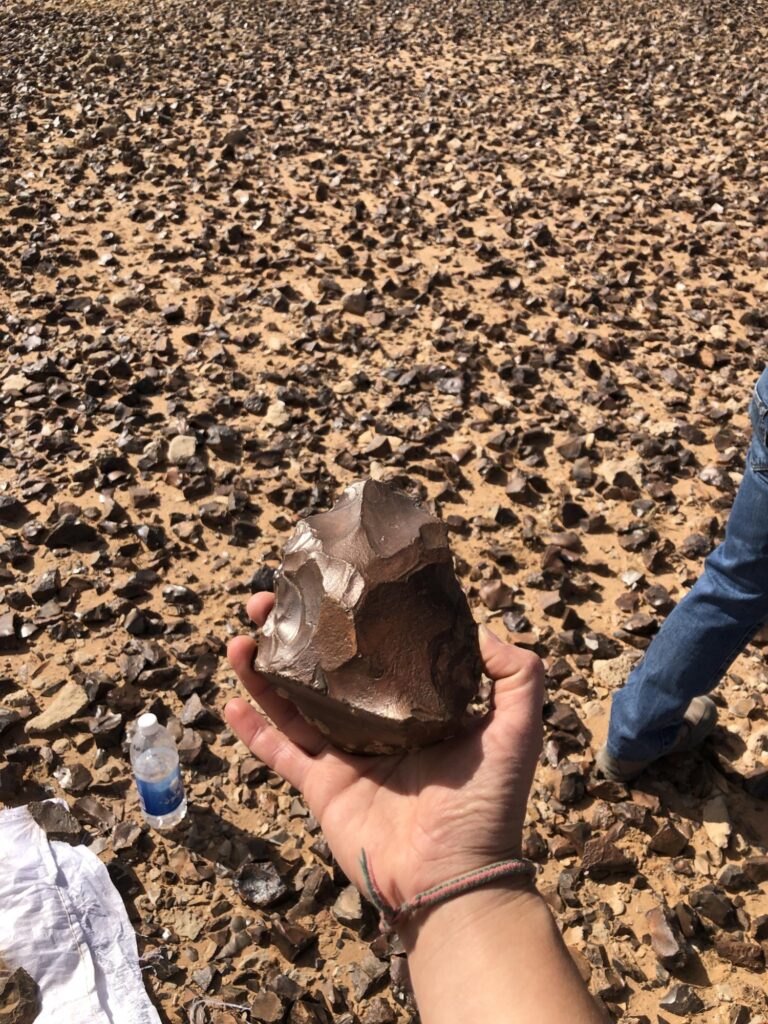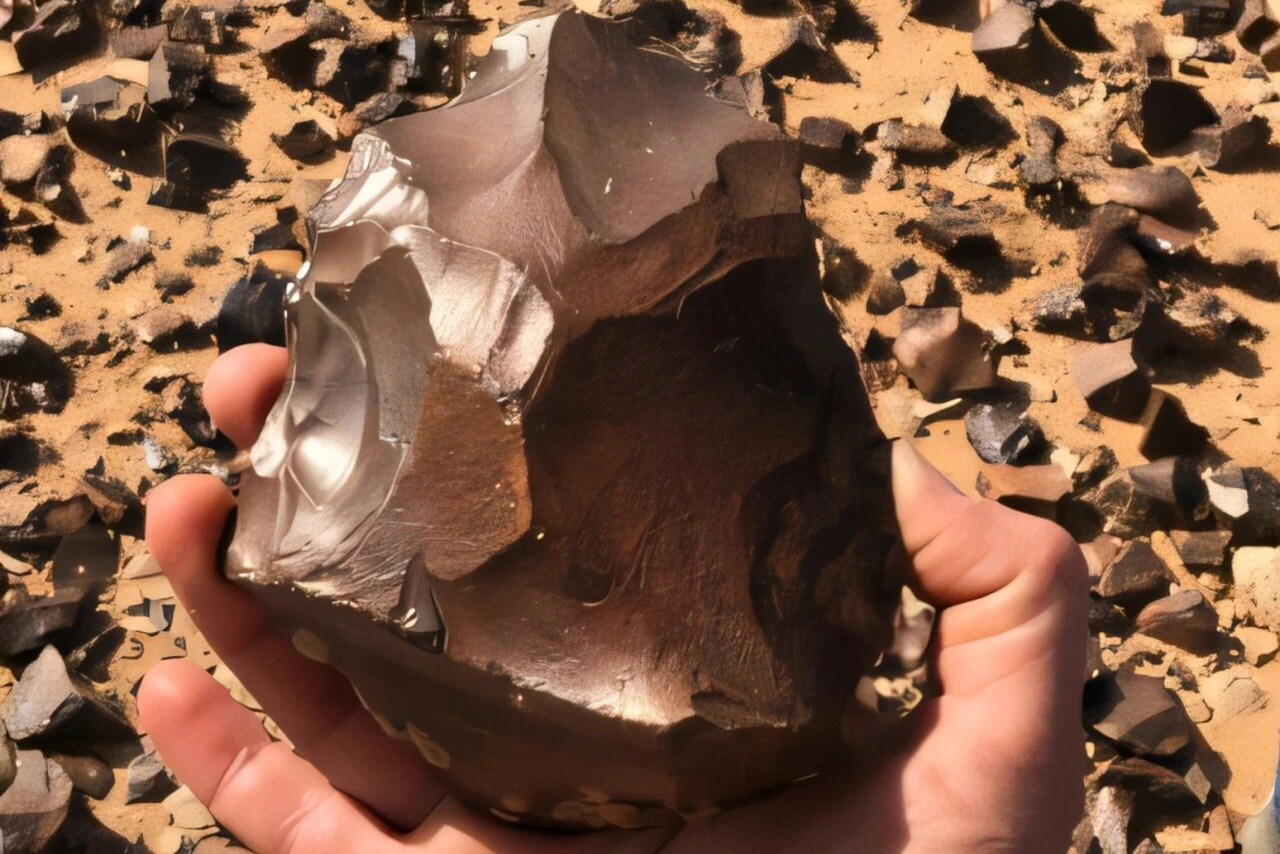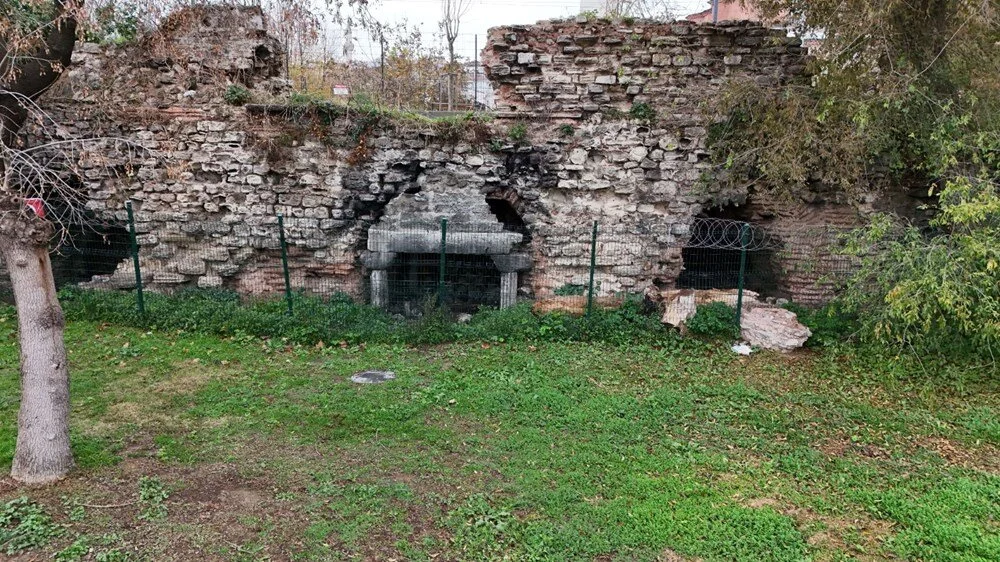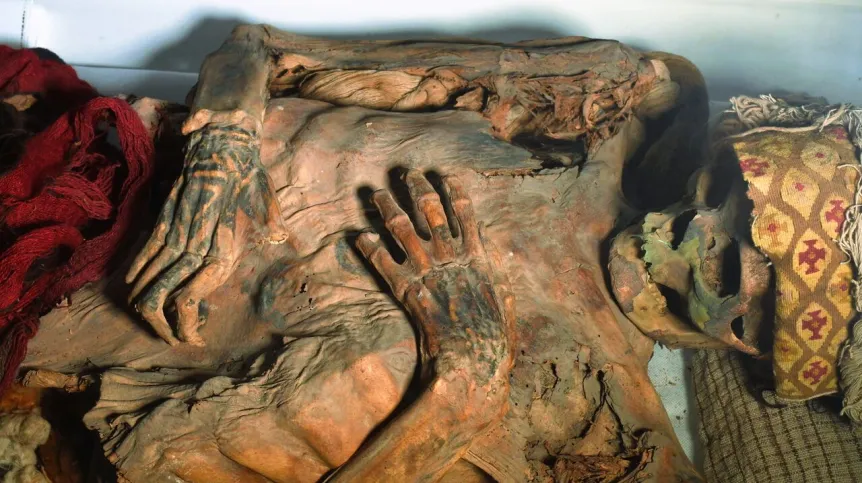In a remarkable archaeological discovery, researchers have uncovered 1.5 million-year-old hand axes alongside seven important Paleolithic sites in Iraq’s Western Desert. This significant find was made by archaeologists from the Free University of Brussels (VUB) during an excavation covering a 10×20 kilometer area.
Researcher Ella Egberts traveled to Iraq in November and December. Her goal was to search for archaeological surface materials in the Al-Shabakah region. The project aims to provide insights into the geomorphological history of the Western Desert of Iraq. It also explores the preservation potential of artifacts from the Lower and Middle Paleolithic periods. Egberts noted that the campaign was highly successful.
“The targeted fieldwork resulted in the discovery of seven Paleolithic sites within a 10 x 20 km area,” Egberts stated. The research focused on an area that once housed a large lake during the Pleistocene. This area is now completely dried up and features ancient valleys and dry riverbeds. The team collected over 850 artifacts, including hand axes from the Early or Old Paleolithic period and Levallois reduction flakes from the Middle Paleolithic.

Egberts’ work in Iraq included an educational component. A significant part of the fieldwork involved training Iraqi archaeology students in geoarchaeology and Paleolithic archaeology. Three students joined the team in the field. Additionally, a workshop at Al-Qadisiyah University inspired many more students and academics about the Paleolithic period in Iraq.
The team shared their findings at a conference in Kerbala. They presented to a multidisciplinary academic audience interested in the history of the Western Desert. They also shared their results with the public and media at the Writers’ Union in Najaf. Furthermore, they had the opportunity to educate local elementary school children about prehistoric flint discoveries.
Egberts remarked that their work in Iraq progressed much more smoothly than expected. This is notable in an environment often viewed as a “powder keg.” The Iraqi State Board of Antiquities and Heritage has appreciated their efforts and encouraged the continuation of their work. Egberts plans to continue her research at VUB and aims to secure funding to reconstruct Pleistocene environmental changes.
Free University of Brussels (VUB)
Cover Photo: Free University of Brussels





